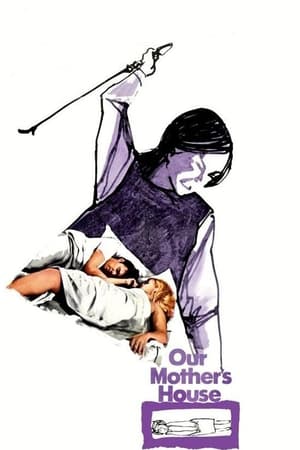
Our Mother's House
Go Away, Go Away, Go Away! Our Mother’s House is directed by Jack Clayton and adapted to screenplay by Jeremy Brooks and Haya Harareet from the novel of the same name written by Julian Gloag. It stars Dirk Bogarde, Margaret Brooks, Pamela Franklin, Louis Sheldon Williams, John Gugolka, Mark Lester and Yootha Joyce. Music is by Georges Delerue and cinematography by Larry Pizer. When seven youngsters are left orphaned by the death of their bedridden mother, they decide to keep her passing quiet case they get split up and sent into orphanages. The youngsters prove to be quite resourceful and tick along nicely, that is until one of the boys brings a friend home to live with them; just as the children’s estranged father appears on the doorstep. At first glance it seems material ripe for an Ealing Studios piece, a whimsical fable of adorable youngsters taking on the world in trying circumstances, Our Mother’s House is a far cry from such a thing! It’s a creepy off-kilter film of some considerable class, containing psychological insights into seven children adapting and improvising in life by creating their own new order. The results are both enlightening and frightening. They have a weekly séance type of set-up where they believe they are talking to their dead mother, they administer their own punishments and forge their own cheques! But of course this self sufficient life can’t possibly last… Children of the beguiled. Once their supposed father Charlie (Bogarde brilliant) arrives on the scene, the applecart is well and truly upset. He evokes a number of different passions in the children, good and bad, but he seems a genuine guy, however, both Charlie and the children have new colours yet to be revealed, and once out in the open all will form the potent and dramatic last quarter. The child actors are excellent, well guided by Clayton (The Innocents), who manages to bring out the various states of emotional confusion upon the death of the mother. Joyce in a rare serious role is good “Cougar” foil for Bogarde, Delerue’s music is very much in tune with the weird feel to the plotting, and Pizer’s photography really hits the psychological assistance markers, being particularly striking in the finale as the door to Hades is opened. Clayton and Bogarde were never happy with the finished film, but that's no marker to the quality on show here. It’s all a bit implausible of course, but very rarely does the pic disappoint. 8/10
